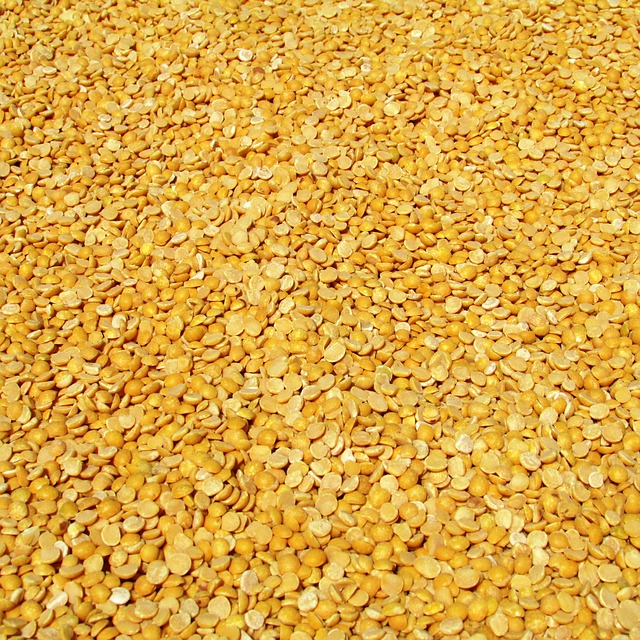March 6, 2020
By Lynda Kiernan
“I believe that in a decade we will look back on the Beyond Meat initial public offering (IPO) and appreciate the enormity of this event in shaping the direction of the Food and Agribusiness industry.”
This was the opening line of a recent article entitled, Consumers and Investors Embrace Plant Based Protein, published in GAI News by AgTech & FoodTech Investment Banker Adam Bergman.
Indeed, the emergence of the plant-based protein narrative in both the consumer psyche and global food markets is creating new channels of growth and investment opportunity verging on a new, independent asset class.
Puris, the largest pea protein producer in North America, has raised an additional $25 million from an undisclosed investor, according to a filing with the SEC. A supplier to both Cargill and Beyond Meat, it was only in August 2019 that Puris raised $75 million from Cargill to double production at its existing 200,000 square-foot facility in Dawson, Minnesota.
“This is more than a pea protein facility. This is the future of food,” said Tyler Lorenzen, president, PURIS in August 2019. “The Dawson facility will not only support PURIS farmers in the U.S. with a crop that regenerates their land and that is sustainable because it provides soil health advantages but will also support the growing demand for great tasting plant-based products in the marketplace. This investment will grant PURIS the ability to support more food companies, more farmers and more consumers faster.”
Global protein consumption is expected to climb at a compounded annual growth rate (CAGR) of 1.7 percent, reaching 943 million tons by 2054, according to Lux Research. Over this same time period, alternative protein sources are forecast to command up to a third of the protein market as they fill the void created by slowing growth in meat and seafood production, and demand shifts within the consumer market.
Although often it is the new, agile, and hungry startups that we see working to meet quickly changing and rapidly growing consumer shifts, this market opportunity is not being lost on some of the largest companies in the world, who are jockeying for position in the market.
Cargill (being supplied by Puris) announced its jump into plant-based foods, launching its private label, plant-based patties and ground meat products to restaurants and retailers beginning in April of this year.
“We’ve created some of the best tasting products available in the plant-based category today,” said Elizabeth Gutschenritter, managing director of Cargill’s alternative protein team. “We’ve combined our deep knowledge of plant proteins with our expertise in R&D, product development and production to deliver products consumers will love.”
Within a month of each other, JBS, the largest meat processor in the world, also announced it was opening an advanced foodtech hub to produce plant-based protein for the global market.
Further, Colorado-based Planterra Foods, a subsidiary of the U.S. arm of JBS, announced the launch of OZO, a new plant-based food brand. Initially the product line will include four items: Burgers, Ground, Mexican-Seasoned Ground and Italian-Style Meatballs made with a proprietary blend of pea and rice protein fermented by shiitake mushrooms.
Retail giant IKEA, known for its Swedish meatballs, is also getting in on pea protein, announcing that it will begin selling plant-based meatballs made from pea protein, oats, apples, and potato beginning in August. As part of the company’s initiative to become “climate positive” by the end of 2030, these plant-based meatballs have a carbon footprint that is 96 percent smaller than either beef or pork.
This IKEA launch follows a 2018 launch of plant-based hotdogs that have a carbon footprint that is only one-seventh of their animal meat-based counterpart, and a plant-based strawberry ice cream.
Within weeks, Michael H. McCain, CEO of Maple Leaf Foods, stated his belief that his company will grow its plant-based food business to a value of C$3 billion (US$2.24 billion) by 2024.
Noting to WattAgNet that historically new food and beverage categories follow a pretty standard arc from “early adoption to takeoff to maturity over a period of five or more years,” McCain said that plant-based foods are currently entrenched mid-way through the process.
“Plant-based protein is currently, what we would describe, in the takeoff phase, where household penetration builds as mass market adoption becomes the focus and mass market outlets such as grocery stores become the primary sales channel,” he said.
To help the company meet this goal and to keep pace with demand, Maple Leaf is also currently constructing a new production facility in Shelbyville, Indiana, that is expected to be online by the close of 2022.
– Lynda Kiernan is Editor with GAI Media and daily contributor to the GAI News and Agtech Intel platforms. If you would like to submit a contribution for consideration, please contact Ms. Kiernan at lkiernan@globalaginvesting.

Let GAI News inform your engagement in the agriculture sector.
GAI News provides crucial and timely news and insight to help you stay ahead of critical agricultural trends through free delivery of two weekly newsletters, Ag Investing Weekly and AgTech Intel.




